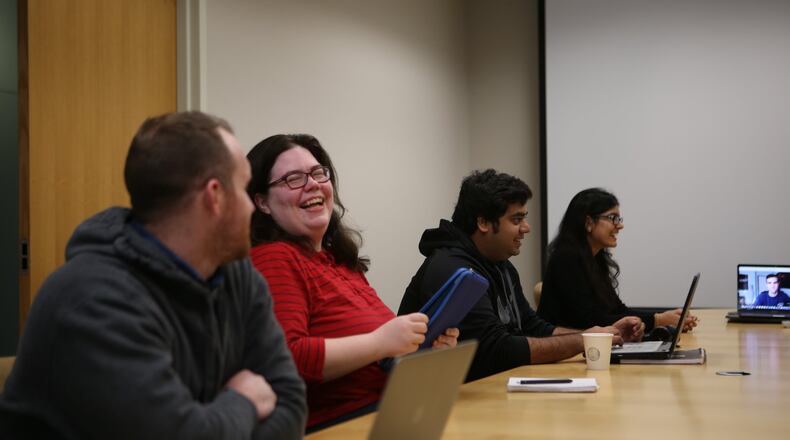Those overseeing Georgia’s public colleges and universities unveiled a plan Tuesday, which some administrators say is the most exhaustive effort to enhance the system’s educational structure in more than two decades.
The recommendations include more online courses and certificate classes for working professionals, using artificial intelligence to assist faculty and students, closely monitoring grades to improve student performance and reducing student cost through means such as getting textbooks at no or low cost. University System of Georgia officials presented the College 2025 Initiative to the state’s Board of Regents Tuesday.
Tristan Denley, the system’s chief academic officer, said experts and political leaders project adults will need more career training as they change their jobs and professions more frequently than in the past.
Chancellor Steve Wrigley created a 22-member team of educators, business leaders and experts to prepare the 26-school, 325,000-student system for “21st century learning and career needs.”
Wrigley called it “a roadmap for ourselves about how to be nimbler and more efficient.”
Some USG schools, such as Georgia Tech, have embarked on similar work outlined in the report.
Some of the work will begin this semester with 13 campuses participating in a pilot program using predictive analytics, a way for educators closely monitor student performance to determine if the student needs help, such as tutoring, or advice about which classes to take. Georgia State University, the largest school in the state system, has used predictive analytics since 2012, crediting it for increases in its graduation rate. Since 2012, the average time for a graduating senior to receive a degree has declined by more than half a semester, university officials say. Critics of predictive analytics say it may prompt some colleges to be more selective about which students it recruits, resulting in fewer students it believes will not succeed — potentially low-income and minority students.
Colleges nationwide have been under increasing pressure in recent years to boost academic performance and better prepare students for careers as tuition skyrocketed and state support for public higher education has declined. A 2016 report found tuition rose by 77 percent during the prior 10 years at Georgia's state colleges and universities. The Board of Regents voted this year to not increase tuition, but student housing costs rose slightly on most campuses. The University System's six-year graduation rate is about 58 percent, which is about the national average.
The report recommends each college create a “futures” task force to explore “strategic planning and visioning.” It also recommends schools regularly talk to business and government leaders about how they can educate students for real-world experiences.
Although many colleges already work with businesses and government on improving classroom offerings, Denley said the 2025 Initiative “is really a renewed emphasis on ways that that relationship can be tighter and more responsive than it has been in the past, as well as exploring new possibilities that have not yet been realized.”
The University System in February created a new degree called "nexus," where businesses will work with campuses to better prepare students for careers in related industries.
The Board of Regents approved a plan Tuesday on the first three degree programs under nexus, where students will do internships and apprenticeships at various businesses. Albany State University will offer a nexus degree in blockchain with machine learning, and the other in blockchain with data analytics. Columbus State University will offer a degree in film production.
There is no money involved in the arrangements between the colleges and businesses, Denley said.
About the Author


